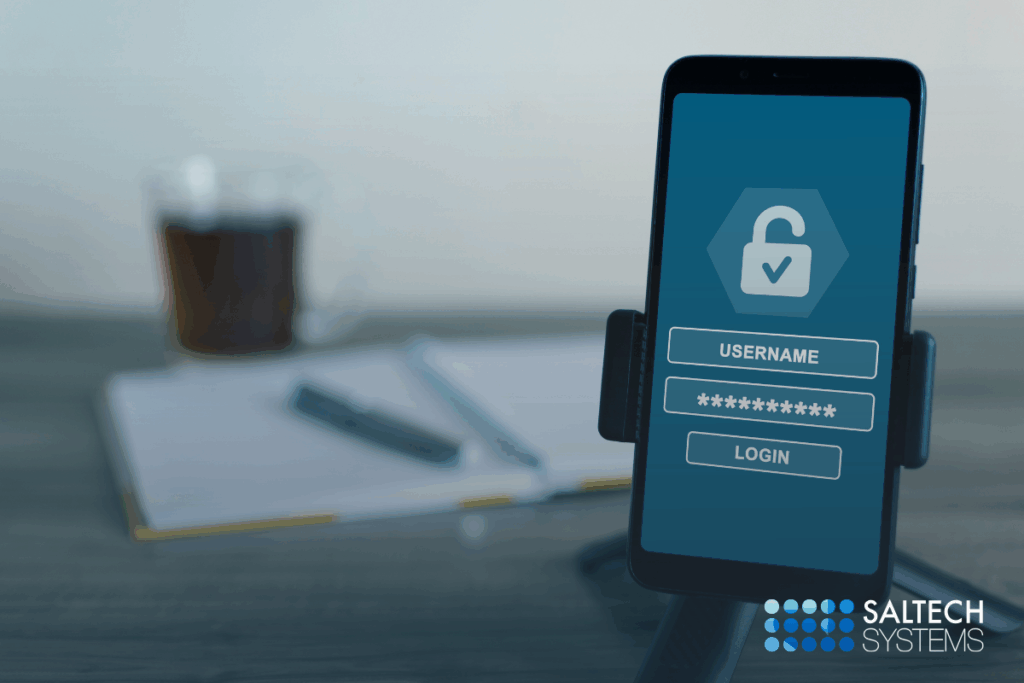Every day we log into apps, check emails, pay bills, and manage our lives online- all behind the protection of a password. It’s easy to forget just how much of our personal and financial data depends on these small strings of text. And while most people know password security is important, there’s still a lot of confusion about what really works in 2025. Should you change your password every few months? Do longer passwords matter? What’s the deal with password managers? In this article, we’ll cut through the noise and share practical, up-to-date advice on how to keep your passwords- and your personal information-safe.
Outdated Rules: Why Frequent Changes Were Once The Norm
Not long ago, the standard advice for password security was to change your passwords every 60-90 days, with no exceptions. This guidance came from early cybersecurity frameworks that assumed frequent changes would reduce the chances of long-term password exposure. The idea was simple: if hackers eventually got access to your credentials, rotating passwords regularly could limit the damage.
But, in reality, this rule often backfired. Users, overwhelmed by having to remember constantly changing passwords, would often default to unsafe habits-reusing the same passwords across sites, writing them down, or making only slight changes each time (like “Password1” becoming “Password2”). Instead off improving security, these practices introduced new vulnerabilities. While well-intended, the frequent-change policy created more frustration than protection.
What Experts Recommend Now
Today, cybersecurity experts agree that forcing users to change their passwords regularly-without a specific reason-does more harm than good. Organizations like the National Institute of Standards and Technology (NIST) and tech leaders such as Microsoft now advise against routine password changes. Instead, they recommend only updating your password if there’s a sign of compromise, like a data breach or suspicious login activity.
So, what does modern password security look like? Experts now emphasize using long, unique passphrases, enabling multi-factor authentication (MFA), and relying on trusted password managers. These methods reduce the likelihood of weak or repeated passwords and offer a higher level of protection than outdated policies ever did. In short, smarter habits-not more frequent ones-are the key to staying secure online.
When You Should Change Your Password
While regular changes aren’t necessary for most people, there are still critical situations where you should act fast. If you’ve been notified of a data breach, spotted unfamiliar login activity, or clicked on a suspicious link, it’s time to change your passwords immediately. These are strong indicators that your credentials may have been exposed or compromised.
Other red flags include losing a device that was logged into important accounts, sharing a password over email or text, or receiving an MFA prompt you didn’t initiate. In a business setting, a departing employee with access to sensitive platforms should trigger immediate password resets. Acting quickly in these moments can prevent unauthorized access and protect your data from being misused.
Password Security Tips
You don’t need to be a cybersecurity expert to protect your digital life-you just need a few smart, manageable habits. First, aim to use long, memorable passphrases instead of short, complex passwords. For example, “CoffeeTable!Window72” is far stronger (and easier to remember) than “R8$t#2.” Avoid reusing the same password across multiple sites, especially for email, banking, or work accounts.
Next, enable multi-factor authentication (MFA) wherever possible. It adds an extra layer of security by requiring you to verify your identity through a second device or code, even if someone gets your password. Finally, consider using a password manager-a secure app that can create, store, and autofill unique passwords for every account. These tools take the pressure off your memory and significantly boost your overall password security.
Frequently Asked Questions (FAQ’s)
Q: How long should my password be?
A: Aim for at least 12 characters. Longer passphrases made of random words, or a memorable sentence, are far more secure than short, complex passwords.
Q: Is it safe to use the same password for more than one account?
A: No. Reusing passwords puts you at risk — if one account is breached, all others with the same password can be compromised.
Q: What is a password manager, and are they safe?
A: A password manager is a secure app that stores and generates strong, unique passwords. Yes, they’re safe — especially if you use one with strong encryption and two-factor authentication.
Q: Do I need multi-factor authentication (MFA)?
A: Absolutely. MFA adds a second layer of password security, making it much harder for attackers to gain access even if they have your password.
Q: How do I know if my password has been leaked?
A: You can check sites like haveibeenpwned.com to see if your email or password has been involved in a known breach.
Smarter Password Habits Start Today
Password security doesn’t have to be complicated — but it does have to be intentional. The outdated advice of changing your password every 90 days isn’t just ineffective anymore; it can even be harmful if it leads to bad habits. Instead, today’s best practices prioritize strength, uniqueness, and multi-factor authentication over frequency. Whether you’re protecting your personal bank account or securing your family’s shared Netflix login, smart password practices go a long way.
If you’re a business owner or organization looking to improve your company’s password security policies, Saltech Systems can help. Our team provides expert IT consulting, security solutions, and staff training to ensure your data stays protected — without making life harder for your users.
Contact Saltech Systems today to learn how we can support your cybersecurity goals.
